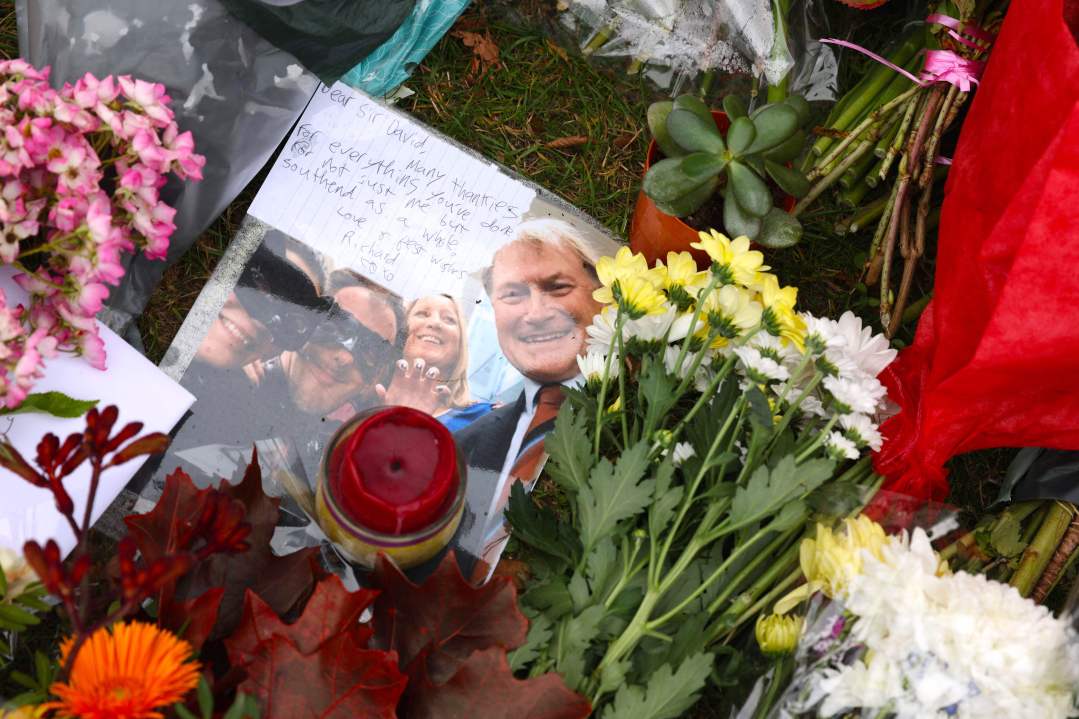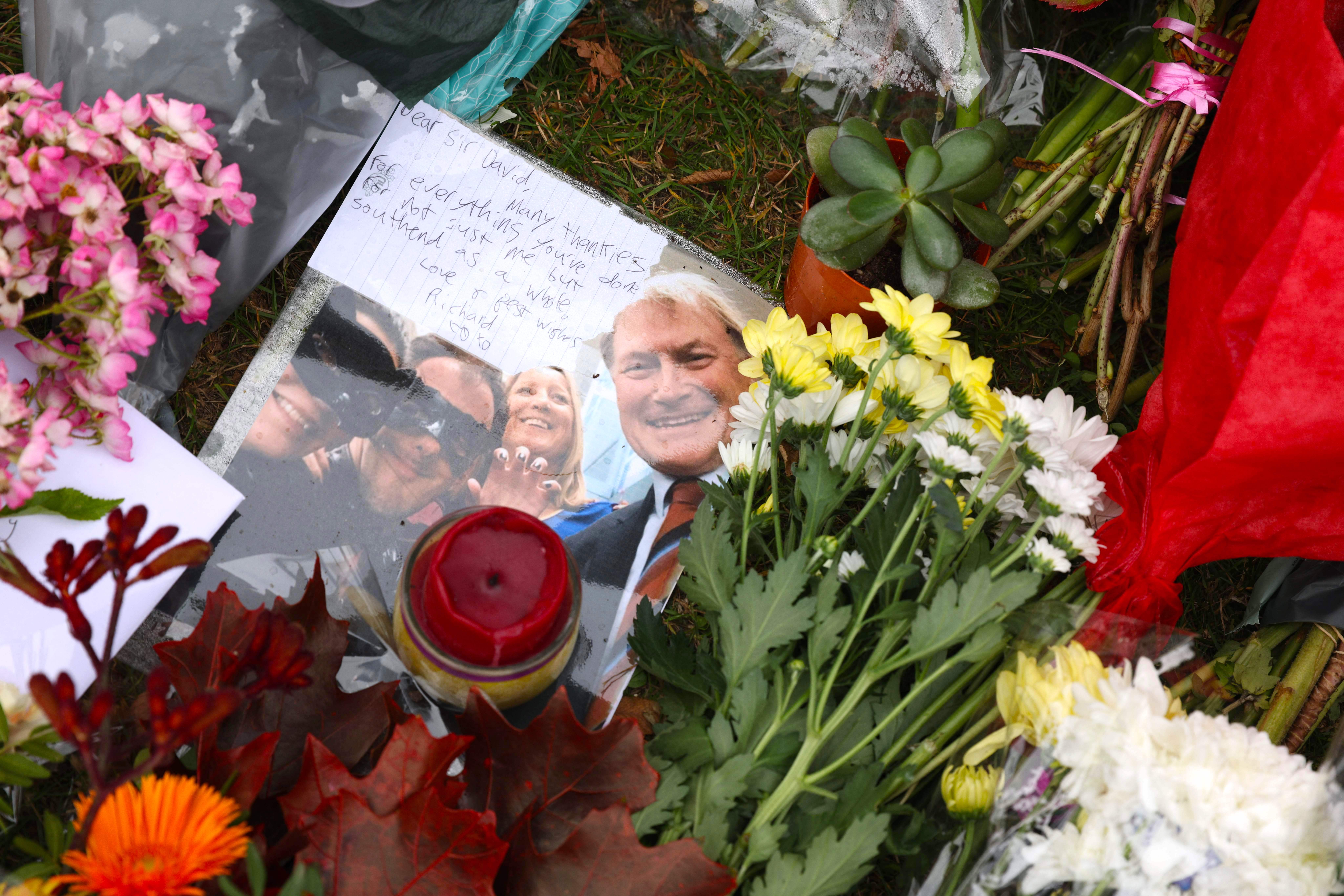The speed with which tragedy turns into farce these days is quite something. Within minutes of Sir David Amess’s death being announced, social media was filled with sizzling hot takes. The back-and-forth centred on whether the decline in ‘civility’ and the use of dehumanising language in politics was to blame for the murder of an MP. It recalled nothing so much as the recriminations after Jo Cox’s death, except that the teams here had, as it were, swapped shirts at half-time.
Back then, the left more or less directly attributed Jo Cox’s murder to the language used by the partisans of Brexit: ‘traitors’, ‘saboteurs’ and so on. Back then, the right accused them of playing politics with a tragedy. This time, voices on the right made a more or less a direct link to Angela Rayner denouncing Tories as ‘scum’. And those on the left pooh-poohed it as tasteless political opportunism.
All of this was, as it took only about 24 hours to discover, completely beside the point. Our best current information seems to indicate that the action in this case was quite elsewhere: Sir David’s killer appears to have been an Islamist rather than a left-wing or a right-wing partisan. There’s no reason yet to believe that the coarsening of political language had anything much to do with it either way.
Motivated reasoning, confirmation bias, group polarisation… these are all very analogue human behaviours
So the murder of David Amess, who by every account I’ve read was a profoundly modest and decent man, may not have very much to tell us about anything. Pain, grief, loss, horror — sometimes they don’t tell us anything except that such things occur and that they are unexpected and unspeakably sad. But the speed and predictability with which the reactions I describe arose, and the shamelessly partisan and inconsistent way they were promulgated, seem to me to say something about the state of the public conversation; about the greedy need to make this awful event mean something, and preferably to make it mean exactly what you and your team already thought.
The towering identitarian narcissism of the discourse these days means that every new piece of data — be it the murder of an MP or a young writer’s decision to turn down a publishing deal — is appraised not on its own awkwardly particular details, but instantaneously scanned to see how it can be made to slot into our existing arguments or, more aptly, into our existing sense of what team we’re on. If it looks like evidence for your side, you were right; if not, that’s the other side ‘playing politics’.
This instinct is, God knows, an old one. Motivated reasoning, confirmation bias, group polarisation… these are all very analogue human behaviours. But they have been turbocharged by the mechanisms of social media. The logic of social media — the clue, as they say, is in the name — is tribal. It’s personal: you follow people rather than subjects. And it’s binary at its core: follow or block; like or unlike; our hashtag or theirs.
That brings us back to the ‘civility’ point in a roundabout way. We can agree that ‘dehumanising’ language — ‘scum’, ‘traitors’, ‘swarms’, ‘parasites’ and so on — is a bad thing, and we shouldn’t need good men to die to ‘prove’ the point; nor implicitly welcome a vicious murder as evidence on our side of the ledger. But though dehumanising your opponents can seem to license violence, that’s not the main reason, not the everyday reason, that it’s wrong.
It’s wrong because dehumanising language is just one among many ways to de-particularise your opponents. It flattens those you disagree with into members of an amorphous enemy mass who don’t need arguing against point by point but who can instead be derided, belittled, dismissed and ideally extirpated. They’re just them: the ‘wall of gammon’, the ‘wokies’, ‘the blue-hair-and-pronouns’, the ‘Terfs’: wrong not because their reasoning is wrong but because they are them — and certainly not wrong about some things, half right about others, and potentially entirely right about still others in ways that hadn’t occurred to you.
That’s attractive because, as a species — and especially as a species whose attention is being ripped to shreds so algorithms can monetise it — we’re lazy. We prefer to navigate the world by heuristics, catch-all assumptions, rules of thumb. We prefer to trade in big, pure, abstract concepts and primary colours. Crediting your opponents with good faith, with complexity, with particularity… that’s hard work. Solving difficult real-world problems by negotiation and compromise rather than torching a succession of straw men, that’s hard work, too.
And I think in this context of Sir David Amess, who did hard work – who went to his constituency surgery every week to fix complicated, particular, personal, difficult real-world problems one by one, and who didn’t come back.







